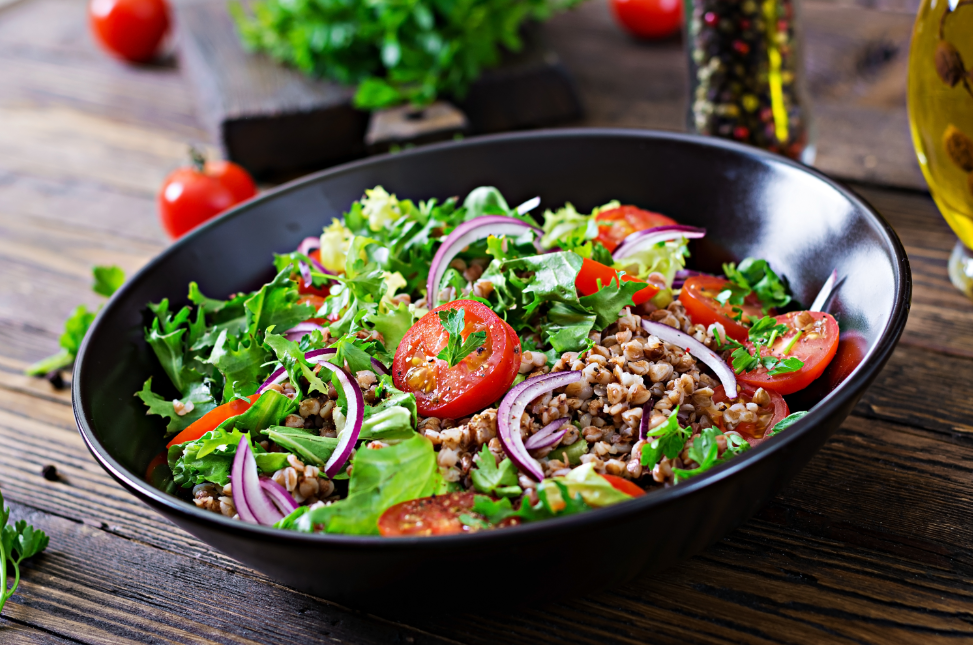
Global warming and climate change may seem like issues beyond your control. However, there are a few changes that you can make to ensure that your diet is environment-friendly. If you are concerned about the environment, and passionate about delicious food, here are a few tips you can follow.
Make Use of Organic Products
You can choose to use foods that are grown naturally without the use of artificial fertilizers, synthetic pesticides, genetic modification, or ionizing radiation. These synthetic products are damaging to the environment as they pollute the soil and water.
Additionally, if you plan on eating meat, select meat from animals that have only eaten organic feed. This organic feed is free of antibiotics, hormones, and other harmful chemicals. It also does not contain animal by-products, hence adhering to the USDA standards.
Consume More Plants
Vegetables need fewer resources and generate fewer emissions. The production of animals, like cattle, requires more farmland and releases more greenhouse gases. Reducing the amount of meat in your diet would, therefore, reduce your carbon footprint.
You could instead choose to prepare vegetable-based meals. In case you need inspiration for possible meals, you can look at vegan recipes provided in a health hacks blog.
Purchase Seasonal Food
Using ingredients that are in season to prepare your food is another way to ensure that your meal is eco-friendly. Although using exotic ingredients in your food may be tempting, produce that is in season in your region will be fresher and will reduce the impact of cross-country or international shipping.
Eat According to Your Region
Based on your location, some foods are more accessible than others. Supporting locally grown foods minimizes fossil fuel emissions by reducing the transport of food over long distances. You can also purchase your plants from local farmers' markets.
These plants are likely to be fresher than store-bought products and contain more nutrients like phytoncides and antioxidants. Food from local markets will also be free from the extensive processing that would be needed to preserve them for transport.
Select Minimal Packaging
It would be best to select products that are minimally packaged to reduce your use of plastics. You could also decide to buy your products in bulk or bring your containers when making a purchase. Some companies are also introducing environment-friendly packaging made from bamboo, polymers, or seaweeds, which you could use.
Preserve Your Food
To reduce the amount of food you waste, you could preserve it by freezing, dehydration, or fermentation. This preservation would also allow you to use seasonal products even after their harvest time passes. To prevent wastage of highly perishable foods, consider your eating habits, and prepare and store your food.
Grow Your Vegetables
You could add potted plants or have a vertical garden at home to grow a few vegetables. You could also join a local community garden. Planting your herbs gives you access to fresh products, saves you a trip to the grocers, and saves you on gas.
Eat Foods Raw
Although not all foods should be eaten raw, you can incorporate foods that can be eaten uncooked, like vegetables into your diet. Adding such foods into your meals saves on gas or energy consumed to cook. Eating raw veggies is a great way to keep you and the environment healthy.
Recycle Your Food or Compost
Buying the exact amount of vegetables can be challenging. Instead, you could choose to double-up on your recipes. Cooking in this way will ensure that you have left-overs that could last several days. Eating these left-overs could reduce the energy used to cook each meal.
Additionally, you could make another meal from your left-overs. Depending on the type of food prepared, left-overs can last for between 3 to 5 days, as long as they are kept in water-seal plastic containers and stored appropriately.
If the ingredients you purchased are too much for one meal, you can decide to turn the food scraps to compost for your garden. You can make compost from vegetable and fruit skins, leftover pulp, loose tea leaves, coffee grounds, and eggshells.
Though it may seem difficult at first, having an environment-friendly diet can be as simple as following the tips mentioned above. The tips not only help you to keep healthy and vibrant but also makes you play a part in the creation of a sustainable environment.
You may also like
10 Best Sites to Buy Protein Supplements Online
42 Best Stores to Buy Health Foods and Supplements Online
The 15 Best Sites to Buy Nutritional Supplements Online
